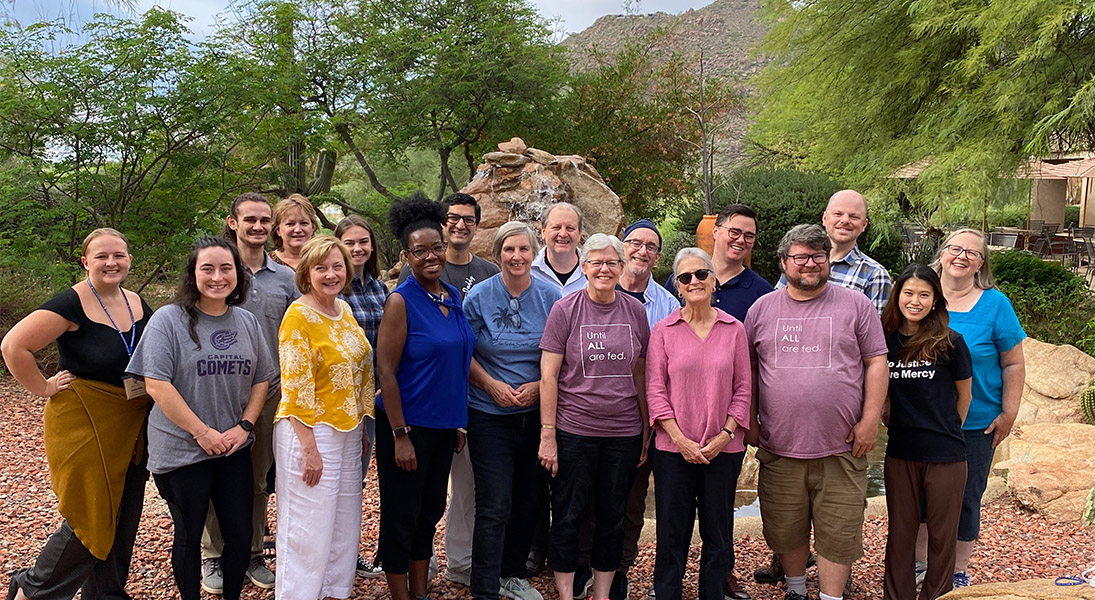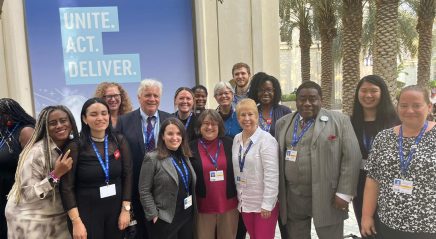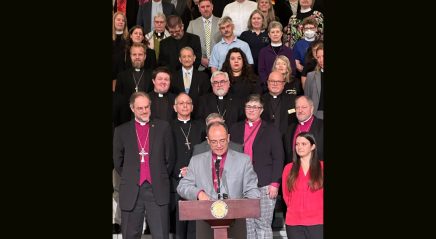“Faith-based advocacy has revealed to me the deep connection between our faith and the call to seek justice,” said Allison Lizdas, who recently concluded her service in the Southeastern Synod as assistant to the bishop for advocacy. “What inspires me most is how it empowers ordinary people of faith to address extraordinary challenges.
“I’ve been moved by the willingness of individuals and congregations to step out of their comfort zones, engage in difficult conversations and take tangible steps toward systemic change—all grounded in their faith. Whether advocating for climate justice, hunger relief or racial equity, their work is a testament to how God uses us to bring about transformation and healing in the world.”
Lizdas is among a group of ELCA-affiliated state public policy office (SPPO) directors who have recently transitioned from their advocacy roles—and have some encouragement for all of us.
Transformation and healing require patience and persistence. Peter Severson, former director of Lutheran Advocacy Ministry–Colorado, sees those qualities in advocates with whom he’s worked. “I remember with particular pride leading our engagement in the campaign to end capital punishment in Colorado, which finally culminated with a successful abolition bill in 2020,” he said. “Knowing that our advocates could see the rewards of their hard work over the years was wonderful and definitely inspiring.”
Advocacy is one important way ELCA members can live out our calling to love God and to love our neighbors as ourselves, Severson said, adding, “My primary advice is to remember that politics and advocacy aren’t the source or author of our salvation. Our salvation comes from God, through what Christ accomplishes for all of us on the cross.
“Far from diminishing the meaning of advocacy work, however, I think this liberates us from feeling like we have to get it exactly right all the time. Instead, we can participate in advocacy work, knowing that it’s imperfect, knowing that we might have to use trial and error, and knowing that our success isn’t always measured by getting a certain bill passed—or defeated.”
“We model the best of our traditions, finding ways to include the most vulnerable in our society’s priorities.”
Kim Bobo, co-executive director of Virginia Interfaith Center for Public Policy, agreed. “Too many folks have had negative experiences with faith communities being judgmental and exclusive,” she said. “We model the best of our traditions, finding ways to include the most vulnerable in our society’s priorities. … We show love in how we work. We treat all legislators with respect and dignity. We may disagree on some policies, but we work to build bridges and build relationships around shared values—and across political lines. Few organizations can do that these days.”
Bobo’s advice to new advocates? “Meeting with a legislator, speaking up at a town hall, participating in a prayer vigil or testifying at a hearing are not things most folks have done,” she said. “Do it anyway. The more you do it, the more comfortable you will be.”
Elise DeGooyer, former executive director of Faith Action Network in Seattle, emphasized that elected officials need constituents’ firsthand stories. “Don’t be afraid to bring your concerns or speak your values to your elected officials,” she said. “You are the expert on what is happening in your community, [and] they work for you!”
Confidence in advocating will grow as people continue to do so, she said, adding, “Speaking truth to power begins with a trembling voice. Soon it will feel natural, and your voice will get stronger.”
“Lifting our voices to alleviate hunger and other forms of suffering is an act of hope,” said Cynthia Crane, a retired pastor and former director of the Lutheran Office for Public Policy in Wisconsin. “We begin with God, who walks with us and is where we end. In response to God’s immense love, we are stewards of the present and a vision of what can be.”
Reach out to your state’s SPPO or synod office to learn more about local advocacy opportunities, and visit elca.org/advocacy for resources and to take action.








